Want To Save Your Eyes: 5 Best Eye care tips
Eyes are one of the most precious gift to us by God. They are two tiny vital organs that make our life beautiful and blessed. We see and admire our nature, our surrounding and live our life smoothly using our eyes. It is our responsibility to protect our eyes by taking meticulous care daily.
We are so busy in our life that we hardly get any time to pay attention to our beautiful eyes.
Why should we take care of our eyes?
- Eyes are the vital organs and we need them throughout our life to live with ease and see this beautiful world.
- Eyes are soft and delicate structures that can get damaged easily.
- Eyes have to bear the constant strain of the excess light as a result of increased screentime and prolonged use of electronic gagdets.
- Eyes are prone to get infected easily by contaminated touch or handling or dirt and pollution.
- Eyes get tired very easily if we dont provide rest to them after using for long periods.
- Lack of Vitamin A rich diet reduces the quality of eyesight day by day and we need to put on glasses thereafter.
- Muscles supporting eye need strength to function properly otherwise they may deter the normal functioning of eyes.
- Eye care is often neglected as we only are concerned the other parts of body more. We can see and that one reason is enough for us to not take care of our eyes.
What can happen to our eyes if we do not take care of them?
Ageing is a process that affects each and every part and cell of our body. Eyes are no exception and when we are putting on extra strain on our eyes, we are definitely causing a rapid wear and tear of our eye. We need to take some time to rejuvenate the eye structures, give muscle strength to the eye muscles(ocular muscles), shape up our eye lids and prevent drooping.
More chances of getting your eyes infected. See: Conjunctivitis/red eye
- Early onset of visual accommodation disorders, farsightedness and nearsightedness
- Eyes with glasses at very young age
- Corneal drying. Tear gland infection. See: Dacryocystitis
- Drooping of eye lid
- Serious eye infections leading to blindness(rarely)
What can we do to save our eyes naturally? How to take care of our eyes?
We can save our eyes naturally by knowing and implementing the 5 best tips of eye care
Our eyes are too delicate to handle. Good knowledge about the eye care and eye care tips can help us maintain the health of our eyes and reduce the risk of discomfort, loss of vision and strain on our eyes.
5 best tips that can actually Save your Eyes
1. Eye hygiene
It is the best tip to save your eyes and promote its health naturally.
- REMEMBER TO WASH YOUR HANDS WITH SOAP AND WATER THOROUGHLY FOR 20 SECONDS AT LEAST BEFORE YOU TOUCH YOUR EYES
- Always wash your eyes in the morning after you wake up, with gentle or luke warm water and clean from inside out, (i.e. from the inner red triangle portion to outwards)
- Clean your hands again before you wash your another eye similarly.
- Never splash water forcefully into your eyes. Keep only a minimum distance so as not to hurt your eyes. Cool splashes twice or thrice a day helps in cleansing your eyes off bacteria and dust particles.
- Do not apply soap on the eyes or rub soap over them. Eyes get easily harmed and irritated by the harmful chemicals present in the soap and shampoo or other cosmetics.
- Always use a clean cotton towel or napkin to wipe your eyes. Don't wipe it actually, just pat it dry with gentle hands.
- When using eye makeup, make sure you own your make up and do not share it with others. Makeup sharing can also be a cause of eye infections. Use genuine eye makeup that is good for your eyes.
- If wearing eye glasses, clean the glasses using clean cloth as often as required. Microbes often are present on the surfaces of objects and can enter into the eyes.
- If putting on contact lenses, always make sure to rinse them carefully as advised by your eye doctor and then take care of your eyes likewise.
- Never sleep with your eye glasses or lenses on at night.
- When on any eye medication, always remember to see the expiry date and make sure the tip of the nozzle does not enter or touch the white portion or lid of your eye. This caninfect the whole solution and also infect your eyes.
- If you are having eye discharge, avoid touching your eyes and instill eye medication as ordered by your ophthalmologist.
2. Eye Exercises:
- Time of exercise: Daily in the morning after getting up and at night before sleeping.
- Frequency: You can do as per your convenience. Three to four times a day.
- Types of exercises:
- Blinking your eyes. Closing and opening the lid. This helps in the normal lubrication of the eyes and maintains the eye moisture and wetness. It is very useful in corneal dryness and irritation. People using mobiles and laptops or screens for prolonged times must blink their eyes many times a day to save their eyes,
- Up and down movement of your eye balls. Move the eyeball up and down as if pretending to see the things from top to bottom . Do this exercise 10 counts 2 repetitions or more as per your comfort.
- Diagonal movements of eye balls: Look diagonally from up to other side's down. 10 counts for 2-3 sets.
- Full rotation of your eyeballs: Try to rotate your eyeballs fully like 360 in an effort to see your front view as full 360 degree view.
- Side-to-side eye ball movements: This is done by moving eye balls from right to left and vice versa. Do for same time interval as above.
- Sunbathing your eyes: Stand up near the window and stare at the cool orange shade of the rising sun for 5 minutes, then close your eyes for few seconds and open gently. Do it every morning, If possible you can also do with setting sun. Exercise with a ball or finger. These exercises can be done with precision usign an object such as ball as the focus point. Bringing the ball back and forth, rotating or near and far can help you exercise your eyes. rub your palms and generate heat then put your palms on the closed eyes gently. Do it after exercises. This provides natural warmth to the eyes.
- Benefits of eye exercises: Helps strengthen the eye muscles, lubricates the eyes, prevents drying of cornea, removes dirt or dust from the eyes, keeps the tear glands healthy and promotes the outflow of tear naturally, increases the vision or sight, maintains the skin tone of the eye lids covering the eyes.
3. Eye rest/ a mini-break to the eyes
- Simply close your eyes in the middle of your busy screen tip. DO it for few seconds. This helps your eyes to relax and take a break from the constant strain due to the light entering them.
4. Eye protection gadgets
Use eye-friendly sunglasses and covers when you have to work under sunlight for prolonged period. it can save your eyes from harmful ultraviolet radiation of sunlight.
- Make sure the screen you use for working has an optimum recommended resolution and color balance the prevents extra strain on your eyes.
- When riding your scooter or bike make sure you cover your eyes with spectacles or sunglasses to prevent any dust from entering the eyes.
- While cleaning your house or dusting make sure you put on dust-proof glasses to avoid entry of any dirt or dust particles.
5. Eye using guidelines
You are definitely the owner of your eyes but you need to understand to use it wisely. You must understand few points for using your eyes in a healthy way.
- Keeping a safe distance between your book and eyes while reading. Do not bring it too close or too far from your eyes. Keep safe distance while using mobile phones, laptops or watching T.V.
- Do not splash water into your eyes from more distance, do not irrigate your eyes without doctor's consultation, in case there is any foreign body or dust particle into your eyes, do not try to remove it on your own by vigorous method. You can take help of someone initially but if that seems not working, you need to rush to your eye doctor.
- Do not apply any eye medications without your doctor's prescription order. It can sometimes be harmful.
- Never rub your eyes. Rubbing can cause friction and tend to damage your cornea which is a thin transparent layer on the sclera or white of your eyes.
- Do not gaze at one thing for longer period, especially a light source that is intense as in electronic devices such as mobiles or computers or tablets.
- Remove your eye makeup as guided by your eye stylist.
- Let your eye breathe natural air. Remove the contact lenses and glasses after you have used it for long hours.
- Manage your screen working hours such that you get your eye break or eye rest period.
6. Eye special diet
You might have heard of balanced diet, right?? Now you need to know about the diet that has special benefit for your eyes.
- You need to take care of your eyes by consuming eye special diet. It means you need to take Vitamin A rich diet.
- Vitamin a rich sources are kiwi, avocado, tomato, carrot, papaya, infact all yellow-colored fruits are rich in Vitamin A, gooseberries or amla, guava, green leafy vegetables such as spinach, coriander, dairy products such as cheese, milk,yoghurt, etc., eggs, cod liver oil.
- Include a good portion of the above rich sources in your diet and enjoy the health benefits to your eyes.
Please leave your valuable comment in the comment box and follow us..
Note: This post is for informational and educational purpose only, It is not a substitute to any medical or professional advice or treatment. See your doctor in any case.

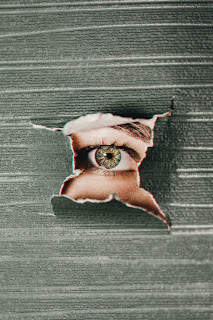
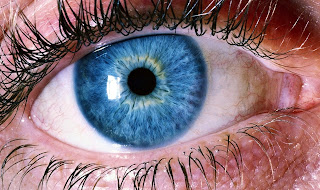
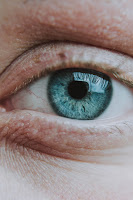
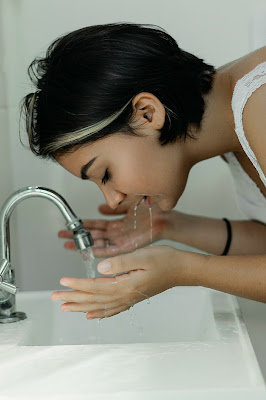


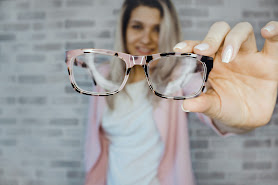

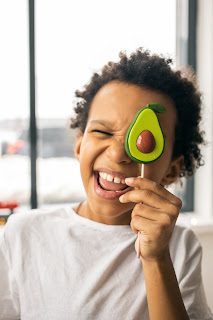
Comments